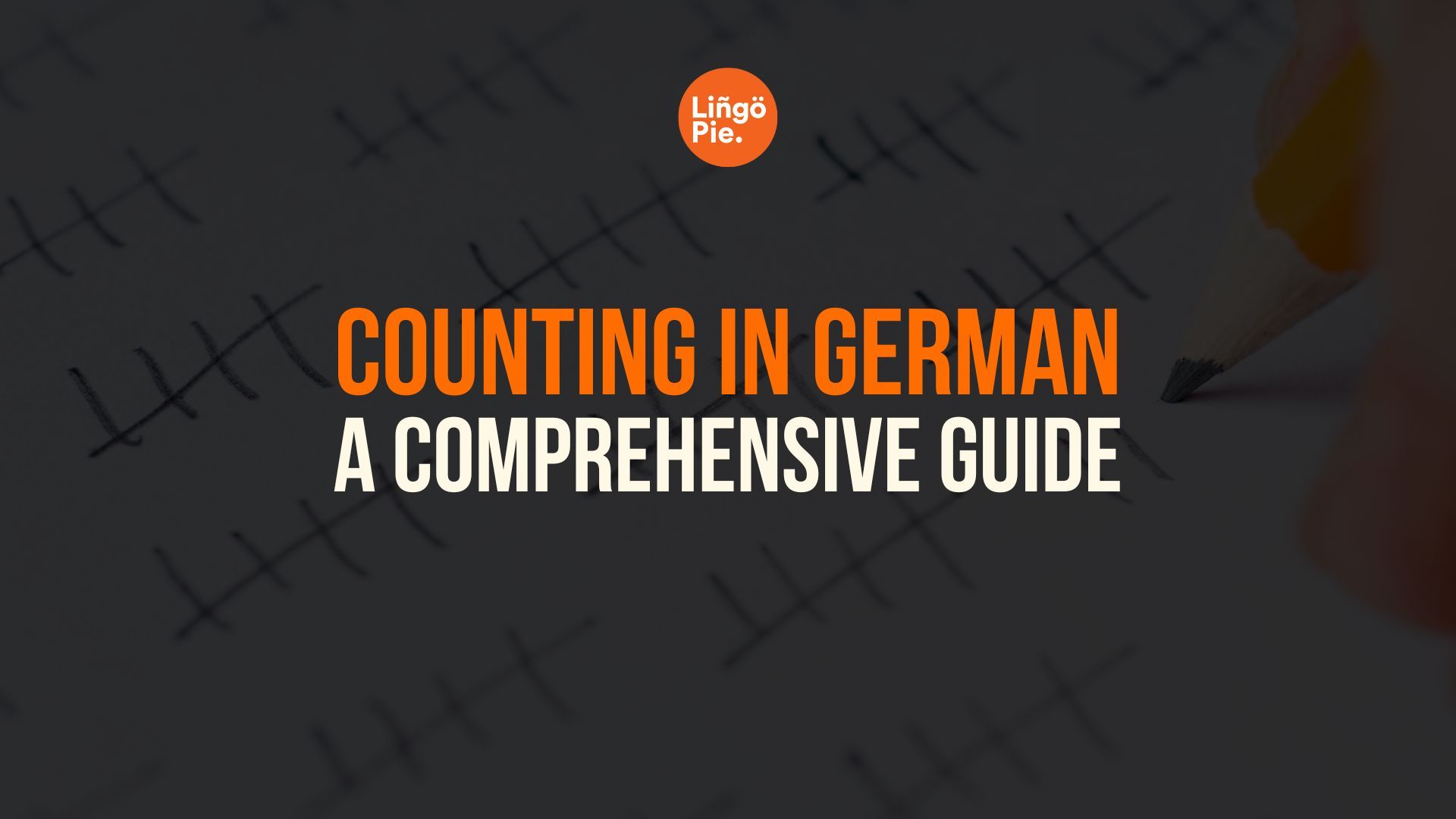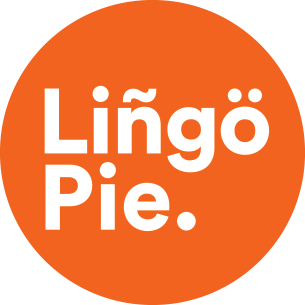Ever hear someone speaking German and wish you could jump into the conversation — whether it's a cheerful Guten Tag or a heartfelt expression of love in German, like Ich liebe dich? The good news is, you don’t need to master long compound words or advanced grammar to start understanding the language.
In fact, just 100 of the most common German words and phrases can help you follow about 50% of everyday conversations. If you’re eager to speak German with more confidence, start by learning the core vocabulary below. These words are practical, powerful, and can be used as the building blocks of real conversation! Let's begin!
- German Learning Websites: Top 12 Options For Every Level
- Dutch Vs German: How Similar Are They?
- 6 Best German Audiobooks For Beginners

How to Use This Guide Strategically
Learning vocabulary effectively means understanding which words to prioritize first. Research shows that the top 100 most frequent words in any language account for roughly 50% of all spoken communication. In German, mastering these core words gives you the building blocks for countless sentences and conversations.
Start with the foundation words (articles, pronouns, basic verbs) since these appear in almost every German sentence. Then move to essential nouns and everyday expressions that you'll use immediately. Each word below includes practical examples of how Germans use it in real situations.
Remember that German nouns are always capitalized and have grammatical gender (der for masculine, die for feminine, das for neuter). Don’t worry about memorizing all the genders at once—focus on learning the words first, and the grammar patterns will become natural with practice.
Common German Function Words
These function words might seem small, but they're the glue that holds German sentences together. Native speakers use these words automatically, and mastering them early will make everything else easier to learn.
der, die, das - the
These definite articles appear before every noun and change based on gender. Der goes with masculine nouns, die with feminine, das with neuter.
ein, eine - a, an
The indefinite articles introduce new information. Use ein with masculine and neuter nouns, eine with feminine nouns.
ich - I
Essential first-person pronoun for talking about yourself in any situation.
du - you (informal)
Used with friends, family, children, and people your age in casual settings.
er, sie, es - he, she, it
Third-person pronouns that refer to people and things based on their grammatical gender.
wir - we
Plural first-person pronoun for group activities and shared experiences.
Sie - you (formal)
Polite form used with strangers, older people, or in professional settings. Always capitalized.

Core German Verbs
Verbs express actions, states, and relationships between ideas. These particular verbs are so fundamental that you'll encounter them in nearly every conversation. Many of these are irregular verbs, meaning they don’t follow standard conjugation patterns, but they're used so frequently that their forms become second nature quickly.
sein - to be
The most important irregular verb in German, used for identity, description, and location.
haben - to have
Critical for possession and forming perfect tenses in German grammar.
werden - to become, will
Used for future tense, passive voice, and expressing change.
können - can, to be able to
Modal verb for expressing ability, possibility, and permission.
müssen - must, to have to
Expresses necessity, obligation, and strong recommendations.
wollen - to want
Essential modal verb for desires, intentions, and future plans.
gehen - to go
Common verb for movement, travel, and figurative "functioning."
kommen - to come
Describes arrival, origin, and movement toward the speaker.
machen - to make, to do
Versatile verb covering various activities, creation, and work.
sagen - to say
Crucial for reporting speech, expressing opinions, and communication.

Essential Connecting Words
These words direct the flow of ideas and show relationships between different parts of sentences. German relies heavily on these connecting words to create complex, nuanced expressions.
Unlike English, German word order changes depending on these conjunctions, making them particularly important to master. Understanding these connectors helps you follow German conversations and express sophisticated thoughts beyond simple sentences.
und - and
Basic conjunction for connecting related words, phrases, and ideas.
oder - or
Presents alternatives and choices in questions and statements.
aber - but
Introduces contrasts, contradictions, and surprising information.
wenn - if, when
Subordinating conjunction for conditions and time relationships.
dass - that
Introduces reported speech, opinions, and indirect statements.
wie - how, like
Used for comparisons, questions about methods, and similarity.
wo - where
Question word for locations and relative clauses about places.
was - what
Essential question word for requesting information and clarification.
wer - who
Question word for asking about people and identity.
warum - why
Asks about reasons, causes, and motivations behind actions.
High-Frequency German Nouns
These nouns represent the people, places, and concepts that Germans discuss most often in daily life. Unlike English, German nouns are always capitalized and have grammatical gender, which affects the articles and adjectives used with them. These particular nouns appear constantly in conversations about family, work, time, and living situations.
der Mann - the man
Basic noun for adult males, also used in compound words and expressions.
die Frau - the woman
Refers to adult females; also formal address equivalent to "Mrs." or "Ms."
das Kind - the child
Important for family, education, and social discussions involving young people.
die Zeit - the time
Abstract but crucial noun for schedules, planning, and temporal discussions.
der Tag - the day
Essential for daily planning, schedules, and time-related conversations.
das Jahr - the year
Used for discussing time periods, ages, and long-term planning.
die Arbeit - the work
Central to employment discussions, tasks, and professional contexts.
das Haus - the house
Important for living situations, real estate, and domestic conversations.
die Stadt - the city
Geographical noun for urban areas, travel, and location discussions.
das Land - the country, land
Refers to nations, rural areas, and geographical regions.

German Numbers and Quantities
Numbers are practical tools you'll need immediately for prices, addresses, phone numbers, and basic mathematical concepts. Beyond simple counting, these numbers help you understand prices, express quantities, and navigate everyday situations where numerical information is essential.
eins - one
Foundation number that changes form based on grammatical context.
zwei - two
Essential for pairs, comparisons, and basic mathematical operations.
drei - three
Important for grouping, time expressions, and quantity descriptions.
vier - four
Useful for addresses, phone numbers, and counting situations.
fünf - five
Essential for work schedules, time periods, and numerical information.
zehn - ten
Benchmark number for counting, percentages, and quantity descriptions.
hundert - hundred
Crucial for large numbers, prices, and measurements.
tausend - thousand
Important for populations, distances, and significant quantities.

Time and Frequency Expressions
Germans are known for their punctuality and precise time management, making these temporal expressions absolutely essential for daily communication. These words help you discuss schedules, make appointments, and describe when events occur.
heute - today
Essential for current events, immediate plans, and present activities.
morgen - tomorrow
Crucial for future planning, appointments, and upcoming events.
gestern - yesterday
Important for recent events, past activities, and sharing experiences.
jetzt - now
Describes current moments, immediate actions, and present circumstances.
immer - always
Expresses habits, permanent characteristics, and consistent patterns.
nie - never
Complete negation for experiences, actions, and absolute statements.
oft - often
Describes frequency without the absoluteness of "always."
manchmal - sometimes
Expresses occasional actions and irregular patterns.
Location and Movement Words
Space and movement are fundamental concepts in any language, and these German words help you navigate both physical and abstract spaces. Whether you're asking for directions, describing where you live, or explaining spatial relationships, these words are indispensable.
hier - here
Indicates location near the speaker or current position.
da/dort - there
Points to locations away from the speaker, with varying degrees of distance.
in - in, into
Preposition for enclosed spaces and general location within something.
auf - on, onto
Describes surface contact and positioning above something.
bei - at, by, near
Indicates proximity, presence with someone, or location at a business.
zu - to, toward
Shows direction, purpose, or movement toward a destination.
von - from, of
Indicates origin, source, or possession relationships.
mit - with
Expresses accompaniment, means, or cooperation with others.

Essential Adjectives and Descriptors
These descriptive words add color, precision, and nuance to your German communication. Rather than speaking in simple, bare-bones sentences, these adjectives help you express opinions, make comparisons, and provide detailed information about people, places, and things. German adjectives change their endings based on the gender and case of the nouns they modify, but learning these common ones in their basic forms gives you immediate descriptive power.
gut - good
Universal positive adjective for quality, performance, and approval.
schlecht - bad
Common negative descriptor for quality, conditions, and disapproval.
groß - big, tall
Describes size, importance, and physical dimensions.
klein - small, little
Indicates size, age, and relative importance or significance.
neu - new
Essential for describing recent acquisitions, fresh information, and modernity.
alt - old
Describes age, experience, and things from the past.
schön - beautiful, nice
Positive aesthetic judgment and general approval.
viel - much, many
Quantifier for large amounts, frequently used in daily conversation.
wenig - little, few
Describes small quantities and limited amounts.

Practical Phrases for Immediate Use
These complete phrases give you immediate communication power in real German situations. Unlike individual words, these expressions are ready-to-use tools for common scenarios you'll encounter from day one. Germans use these exact phrases regularly, so learning them as complete units helps you sound more natural and confident. These phrases also demonstrate how the individual words you've learned combine to create meaningful communication.
Wie geht's? - How's it going?
Casual greeting for friends and informal situations.
Es tut mir leid - I'm sorry
Essential apology for mistakes, accidents, and misunderstandings.
Entschuldigung - Excuse me
Polite attention-getter and apology for minor interruptions.
Bitte - Please / You're welcome
Multi-purpose politeness word used in various social contexts.
Danke - Thank you
Basic gratitude expression for gifts, help, and courtesies.
Gern geschehen - You're welcome
Polite response to thanks, showing willingness to help.
Wie heißen Sie? - What's your name? (formal)
Standard introduction question for formal and professional situations.
Ich verstehe nicht - I don't understand
Crucial phrase for learning situations and communication difficulties.
Sprechen Sie Englisch? - Do you speak English?
Helpful backup question when German communication becomes challenging.
Wo ist...? - Where is...?
Essential question format for finding locations, people, and objects.

Additional Essential Words
These remaining words complete your foundation of the most common German vocabulary. They include important verbs for daily activities, useful adjectives for descriptions, and practical words that appear frequently in German conversations. These words bridge the gap between basic communication and more natural, fluent expression.
sehen - to see
Important for describing visual experiences, watching, and understanding situations.
wissen - to know (facts)
Essential for expressing knowledge of information, facts, and procedures.
denken - to think
Crucial for sharing opinions, beliefs, and mental processes with others.
nehmen - to take
Common verb for grabbing, accepting, using transportation, and making choices.
geben - to give
Important for transfers, providing information, and offering assistance to others.
finden - to find
Used for locating objects and expressing opinions ("I find that...").
leben - to live
Essential for discussing lifestyle, residence, and life experiences.
stehen - to stand
Important for position, location, and various idiomatic expressions.
lassen - to let, to leave
Versatile verb for permission, causation, and leaving things behind.
bleiben - to stay, to remain
Useful for expressing duration, persistence, and remaining in place.
liegen - to lie, to be located
Describes position and location of objects and places.
heißen - to be called, to mean
Essential for names, introductions, and expressing meaning.
dürfen - may, to be allowed to
Modal verb for permission and polite requests.
sollen - should, ought to
Expresses recommendations, obligations, and reported instructions.
mögen - to like
Important for expressing preferences and positive feelings toward things.
Nein - No
Basic negative response essential for disagreement and refusal.
Ja - Yes
Fundamental positive response for agreement and confirmation.
nicht - not
Essential negation word that appears in most negative statements.
nur - only, just
Useful limiting word for expressing exclusivity and restrictions.
auch - also, too
Common word for adding information and expressing similarity.
Now that you have this essential vocabulary foundation, you're ready to start building real German communication skills. Use these words as your launching pad for more advanced learning, whether through German courses, language exchange partners, or German media consumption.

German Question Words
- wer - who
- was - what
- wo - where
- wann - when
- wie - how
- warum - why
Other Useful German Phrases
- Danke schön. - Thank you.
- Bitte schön. - You're welcome.
- Entschuldigung. - Excuse me/sorry.
- Es tut mir leid. - I'm sorry.
- Sprechen Sie Englisch? - Do you speak English?
- Wo ist die Toilette? - Where is the bathroom?
- Was kostet das? - How much is this?
- Wie viel Uhr ist es? - What time is it?
- Woher kommst du? - Where are you from?
- Wie alt bist du? - How old are you?
- Wie spät ist es? - What time is it?
- Was machen Sie beruflich? - What do you do for a living?
- Haben Sie Kinder? - Do you have children?
- Wie lange? - For how long?
- Ich verstehe nicht. - I don't understand.
- Ich liebe dich. - I love you.
- Ich heiße... - My name is...
- Ich komme aus... - I come from...
- Ich bin ... Jahre alt. - I am ... years old.
- Ich lerne Deutsch. - I am learning German.
- Ich bin müde. - I am tired.
- Ich bin krank. - I am sick.
- Ich bin verloren. - I am lost.
- Ich fühle mich gut. - I feel good.
- Ich arbeite als... - I work as...
- Ich will... - I want...
- Ich sehe fern. - I watch TV.
- Ich höre Musik. - I listen to music.
- Können Sie mir helfen? - Can you help me?
- Ich weiß nicht. - I don't know.
- Ich möchte... - I would like...
- Noch einmal, bitte. - Once more, please.
- Ich habe Hunger. - I am hungry.
- Ich habe Durst. - I am thirsty.
- Kann ich zahlen? - Can I pay?
- Ich brauche Hilfe. - I need help.
- Links - Left
- Rechts - Right
- Es regnet. - It's raining.
- Es ist sonnig. - It's sunny.
Introduction to the German Language
The German language is a fascinating and complex language with a rich history and culture. It is a West Germanic language spoken by over 100 million people around the world, making it one of the most widely spoken languages globally. German is the official language of Germany, Austria, Switzerland, and several other European countries. It also holds the status of one of the official languages of the European Union.
German is a highly inflected language, featuring a complex system of declensions and conjugations. Its distinctive grammar and syntax, characterized by a subject-verb-object word order, set it apart from many other languages. The German vocabulary is vast and intricate, with numerous words borrowed from Latin, Greek, and French, among other languages.
Despite its complexity, German is a beautiful language to learn, with a wealth of resources available for language learners. Whether you’re interested in learning German for travel, business, or cultural exchange, it’s a rewarding and challenging language to study. Embracing the German language opens doors to understanding a rich cultural heritage and connecting with millions of speakers worldwide.
Effective Learning Techniques for German Words
Learning German words and phrases can be a challenging task, but with the right techniques, you can make the process more enjoyable and effective. Here are some effective learning techniques for German words:
- Flashcards: Create flashcards with German words on one side and their English translations on the other. Quiz yourself by covering the English side and trying to recall the German word. This method is great for memorization and quick recall.
- Language exchange: Find a language exchange partner who speaks German and practice speaking with them regularly. This will help you learn new words and phrases in context, making it easier to remember and use them correctly.
- Watch German media: Watching German TV shows and movies with English subtitles can be incredibly beneficial. This technique helps you learn new words and phrases in context and improves your listening skills. Plus, it’s a fun way to immerse yourself in the language.
- Read German texts: Reading German texts, such as news articles and books, can significantly improve your reading comprehension and introduce you to new vocabulary. Start with simpler texts and gradually move to more complex ones as your skills improve.
- Practice speaking: Practice speaking German as much as possible, even if it’s just a few words a day. This will help you build confidence and improve your pronunciation. Speaking regularly is key to becoming fluent.
By incorporating these techniques into your learning routine, you can make learning German words and phrases more enjoyable and effective. Remember, consistency is key, and the more you practice, the better you’ll become.
- German Learning Websites: Top 12 Options For Every Level
- Dutch Vs German: How Similar Are They?
- 6 Best German Audiobooks For Beginners
Ready to Speak German?
Learning common German words is your first step to real German conversations. You've got the essentials now - from basic greetings to everyday phrases that Germans actually use. Remember, these aren't just random words; they're the keys to unlocking German communication.
Want to take your German learning to the next level? Try Lingopie's German movies and TV shows. You'll hear these common words in action, pick up natural pronunciation, and learn even more vocabulary through real German content. Plus, with interactive subtitles and personalized learning tools, you'll be speaking German faster than you thought possible.
Start your free trial today and experience how fun learning German can be!










